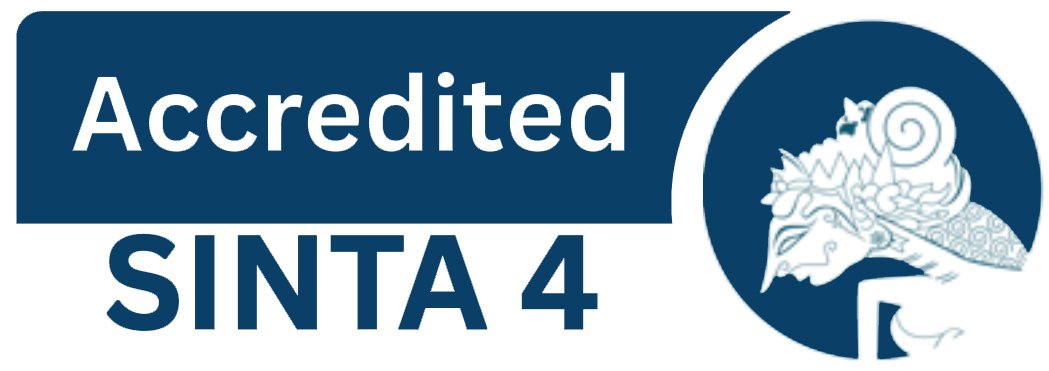MENINGKATKAN PEMAHAMAN KONSEP MAHASISWA CALON GURU SEKOLAH DASAR PADA MATERI FLUIDA STATIS DENGAN GAME ANDROID
DOI:
https://doi.org/10.22460/collase.v4i5.8647Keywords:
Fluid, Static, Concept, Game, AndroidAbstract
This study aims to improve understanding of the concept of prospective elementary school teacher students on static fluid material assisted by android games. The Android game used is Water Physics Simulation. This research is a quasi-experimental study with the samples used are class 5E as the experimental class and class 5H as the control class. The experimental class learns the concepts of static fluid with the help of Android games and the control class learns the concepts of static fluid as usual, namely conventionally (lectures via webmeeting). Data regarding the understanding of the concept of static fluid for elementary school teacher candidates were obtained by tests (pretest and posttest) which were then analyzed by independent sample t-test and normalized gain test. The results showed that the experimental class after being given treatment had a higher understanding of the static fluid concept than the control class. So, from this study it was found that the Android Water Physics Simulation Game was effective in improving the understanding of the concept of static fluid for elementary school teacher candidates.
References
Adisna, Q. D. P. P., Wahuni, A., & Suyudi, A. (2019). Analisis Pemahaman Konsep Fisika Siswa Pada Pokok Bahasan Fluida Statis. IFP (Jurnal Ilmu Fisika Dan Pembelajarannya), 3(2), 68–75.
Afirianto, T., Wardhono, W. S., & Pelealu, B. N. (2018). Pengembangan Game Edukasi Mobile Augmented Reality untuk Membantu Pembelajaran Anak dalam Membaca, Menulis, dan Berhitung. Jurnal Pengembangan Teknologi Informasi Dan Ilmu Komputer, 3(2), 1492–1499. http://j-ptiik.ub.ac.id/index.php/j-ptiik/article/view/4414
Aini, N. N., Kusairi, S., & Diantoro, M. (2017). Penguasaan Konsep Fluida Statis dalam Pembelajaran Kolaboratif dengan Penilaian Formatif. Jurnal Pendidikan: Teori, Penelitian, Dan Pengembangan, 2(10), 1377–1387.
Aribowo, L. A., Saptono, S., Subali, B., & Marwoto, P. (2019). The Use of Gadget for Science Students of Semarang State University in the Millenial Era. Scientiae Educatia, 8(1), 1. https://doi.org/10.24235/sc.educatia.v8i1.3661
Blanco-Herrera, J. A., Gentile, D. A., & Rokkum, J. N. (2019). Video Games can Increase Creativity, but with Caveats. Creativity Research Journal, 31(2), 119–131. https://doi.org/10.1080/10400419.2019.1594524
Del Moral Pérez, M. E., Guzmán Duque, A. P., & Fernández GarcÃa, L. C. (2018). Game-Based Learning: Increasing the Logical-Mathematical, Naturalistic, and Linguistic Learning Levels of Primary School Students. Journal of New Approaches in Educational Research, 7(1), 31–39. https://doi.org/10.7821/naer.2018.1.248
Desstya, A., WR, U. H., & Azizunnisa, A. (2018). Content Knowledge Konsep Dasar IPA Mahasiswa Calon Guru Sekolah Dasar. Mengembangkan Kompetensi Pendidik Dalam Menghadapi Era Disrupsi, 247–256.
DiCerbo, K. (2013). Game-Based Assessment of Persistence. Educational Technology and Society, 17, 17–28.
Dye, M. W. G., Green, C. S., & Bavelier, D. (2009). The development of attention skills in action video game players. Neuropsychologia, 47(8–9), 1780–1789. https://doi.org/10.1016/j.neuropsychologia.2009.02.002
Farhurohman, O. (2017). Hakikat Bermain Dan Permainan Anak Usia Dini Di Pendidikan Anak Usia Dini (PAUD). As-Sibyan: Jurnal Pendidikan Anak Usia Dini, 2(1), 27–36.
Fathurohman, C., Ruhiat, Y., & Septiyanto, R. F. (2018). Penerapan Media Simulasi Phet Untuk Meningkatkan Pemahaman Konsep Siswa Pada Materi Fluida. Prosiding Seminar Nasional Pendidikan Fisika Untirta, 64–70.
Garris, R., Ahlers, R., & Driskell, J. E. (2002). Games, Motivation, and Learning: A Research and Practice Model. Simulation & Gaming, 33(4), 441–467. https://doi.org/10.1177/1046878102238607
Gonzalez-Acevedo, N. (2016). Technology-enhanced-gadgets in the Teaching of English as a Foreign Language to Very Young Learners. Ideas on Implementation. Procedia - Social and Behavioral Sciences, 232, 507–513. https://doi.org/10.1016/j.sbspro.2016.10.070
Gunanto, S. G. (2017). Penciptaan Permainan Digital Edukatif Berbasis Wawasan Budaya Dan Pendidikan Karakter. Journal of Animation & Games Studies, 2(2), 207. https://doi.org/10.24821/jags.v2i2.1421
Hendriawan, D., & Usmaedi, U. (2019). Penerapan Pembelajaran Higher Order Thinking Skills (HOTS) Di Sekolah Dasar. Jurnal Pendidikan Dasar Setiabudhi, 2(2), 72–86.
Klimova, B., & Kacet, J. (2017). Efficacy of Computer Games on Language Learning. Turkish Online Journal of Educational Technology-TOJET, 16(4), 19–26.
Kudisiah, K. (2018). Meningkatkan Hasil Belajar Ipa Materi Gaya Menggunakan Metode Demonstrasi Pada Siswa Kelas IV SDN Bedus Tahun Pelajaran 2017/2018. Jurnal Ilmiah Mandala Education, 4(2), 195. https://doi.org/10.36312/jime.v4i2.475
Li, J., Ma, S., & Ma, L. (2012). The Study on the Effect of Educational Games for the Development of Students’ Logic-Mathematics of Multiple Intelligence. Physics Procedia, 33, 1749–1752. https://doi.org/10.1016/j.phpro.2012.05.280
Moffat, D. C., Crombie, W., & Shabalina, O. (2017). Some Video Games Can Increase the Player’s Creativity. International Journal of Game-Based Learning, 7(2), 35–46. https://doi.org/10.4018/IJGBL.2017040103
Pitarch, R. C. (2018). An Approach to Digital Game-based Learning: Video-games Principles and Applications in Foreign Language Learning. Journal of Language Teaching and Research, 9(6), 1147. https://doi.org/10.17507/jltr.0906.04
Poondej, C., & Lerdpornkulrat, T. (2016). The development of gamified learning activities to increase student engagement in learning. Australian Educational Computing, 31(2), 1–16.
Puspita, W. I., Sutopo, S., & Yuliati, L. (2019). Identifikasi penguasaan konsep fluida statis pada siswa. Momentum: Physics Education Journal, 3(1), 53–57.
Putri, N. L. K., & Tahir, H. (2014). Kompetensi Profesional Guru dalam Menyiapkan Konsep Materi Ajar PKn Pada SMP Negeri 30 Makassar. OMALEBBI: Jurnal Pemikiran, Penelitian Hukum, Pendidikan Pancasila Dan Kewarganegaraan, 1(2), 59–68.
Reyes-Chua, E., & Lidawan, M. W. (2019). Games as Effective Language Classroom Strategies: A Perspective From English Major Students. European Journal of Foreign Language Teaching, 4(1), 111–131.
Rohmah, N. (2016). Bermain Dan Pemanfaatannya Dalam Perkembangan Anak Usia Dini. Jurnal Tarbawi, 13(2), 27–35.
Setiawan, H. S. (2018). Analisis Dampak Pengaruh Game Mobile Terhadap Aktifitas Pergaulan Siswa SDN Tanjung Barat 07 Jakarta. Faktor Exacta, 11(2), 146. https://doi.org/10.30998/faktorexacta.v11i2.2338
Shabaneh, Y., & Farrah, M. (2019). The Effect of Games on Vocabulary Retention. Indonesian Journal of Learning and Instruction, 2(01). https://doi.org/10.25134/ijli.v2i01.1687
Tang, S., Hanneghan, M., & El Rhalibi, A. (2009). Introduction to Games-Based Learning. In Games-Based Learning Advancements for Multi-Sensory Human Computer Interfaces (pp. 1–17). IGI Global. https://doi.org/10.4018/978-1-60566-360-9.ch001
Widodo, W., Sudibyo, E., Suryanti, S., Sari, D. A. P., Inzanah, I., & Setiawan, B. (2020). The Effectiveness of Gadget-Based Interactive Multimedia in Improving Generation Z’s Scientific Literacy. Jurnal Pendidikan IPA Indonesia, 9(2), 248–256. https://doi.org/10.15294/jpii.v9i2.23208
Yulanda, N. (2017). Pentingnya Self Regulated Learning bagi Peserta Didik dalam Penggunaan Gadget. Research and Development Journal of Education, 3(2), 164–171. https://doi.org/10.30998/rdje.v3i2.2013



